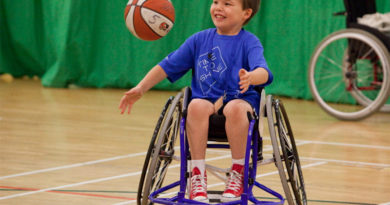Faithful Families – How Parents Can Instill Faith in their Children
As a parent, you are well aware that family life represents the foundation for your children’s development. It’s the environment where they will learn all their values, beliefs and the qualities that will shape their character and eventually their whole lives. What you teach your children in their first years of life will stay with them forever.
For Christian parents, passing on the gift of faith to their children is extremely important. Teaching kids about Jesus’ love, nurturing their relationship with God from a very early age and helping them discover the joy of welcoming spirituality and traditions into their heart is what all good parents aim to do. However, not all parents know how to start the conversation on faith or how they should talk to their little ones about God.

Instilling faith in young children goes beyond taking them to church regularly or telling them a couple of stories about morals and virtue. If you want to raise faithful children that will grow into faithful adults, you must help them build a more meaningful and personal connection with God at a deeper level. And just like God didn’t create the world in one day, this won’t happen overnight. It will require commitment and patience because it’s a whole journey, not a single step. Here are a few suggestions that can help you start on this journey together.
Start small
The saying baby steps couldn’t be more appropriate for this situation. It’s important to remember that children can’t grasp complex concepts and can easily get confused if you try to explain things that go beyond their capacity of understanding. Instead, you can use real life examples to help them get acquainted with Christian values. It’s much easier for children to assimilate information and understand certain notions when they are linked to daily situations. Teach them how they can become more tolerant, express gratitude or help the ones around them through small but significant actions. Soon, these seemingly minor endeavors will become part of their routine and part of their nature.
Lead by example
It’s a well-known fact that children learn by example. They are keen observers and their curious minds practically absorb what they see around them like a sponge. You are your kid’s first role model and the person with the most influence in his life. He will act just like you do and mimic your behavior, be it good or bad. That’s why you must pay great attention to the way you act around your child. If they see you pray each day, they will most likely want to join in as well. If they notice that reading the Bible is important to you, they’ll become curious and they’ll want to find out more about it. In the end, your religious habits will become their habits.
Use storytelling
It’s no secret that children love stories. They discover and understand the world around them through play and storytelling. Teaching your children about faith and God doesn’t have to resemble a school lesson. They’ll be much more receptive if you use stories to talk to them about God’s love for children or the importance of being close to Jesus. There are many wonderful parables in the Bible that you can tell your kids, using a simpler language that they will understand. However, you don’t necessarily have to tell them stories from the Bible to let them know about Cristian principles. Any story that is based on religious values and has messages of faith will be just as useful.
Read the Bible together
Even though it’s best to talk to children about God in a less formal manner and avoid making Christian related activities seem like a task or chore, you shouldn’t forget that giving children some structure is also important. Kids need schedules and discipline because they thrive on routines. If you want to make religion an integral part of their lives, you can schedule a time each day to read the Bible together. It’s best to start together so you can help your children when they come across something they don’t understand, but in time they can start studying it on their own. You can also encourage this practice by giving each kid their own Bible.
Pray with your children
Prayer is the best “exercise” when it comes to helping children build and nurture their relationship with God. This is how they will learn that God is always present in their lives, and even though they can’t see Him, He always listens and the words you say through prayer matter. In times like these, when the whole world is in distress because of the coronavirus pandemic, teach your children about the importance of relying on our faith in God’s love and care to help us overcome every hardship. In such difficult moments, praying for healing and protection can give us all the power to keep going.
Sing hymns together
Another thing that kids enjoy a lot is singing. You can teach your children short hymns, turn some verses into little songs or watch Christian music videos together and simply sing along. For children, this is just another way to have fun, but the words they sing will echo in their hearts and minds and help bring them closer to God. Besides, if they practice singing hymns at home, they’ll feel much more comfortable singing them when you go to church as well.
Talk to your child openly
Keep in mind that the conversation about God doesn’t have to be and shouldn’t be one-sided. Encourage your kids to ask as many questions as possible about everything related to faith and God, and when you don’t have the answers you shouldn’t be afraid to admit it. Part of the journey is about exploring and sharing your experiences in discovering God every day. There’s no perfect way to do it and mistakes are part of the process as well. But even if the road can get rocky at times, let them know that they can always rely on God to show them the truth and bring them back on the right path.
Image Courtesy: https://unsplash.com/photos/YGJyFwmEC68


